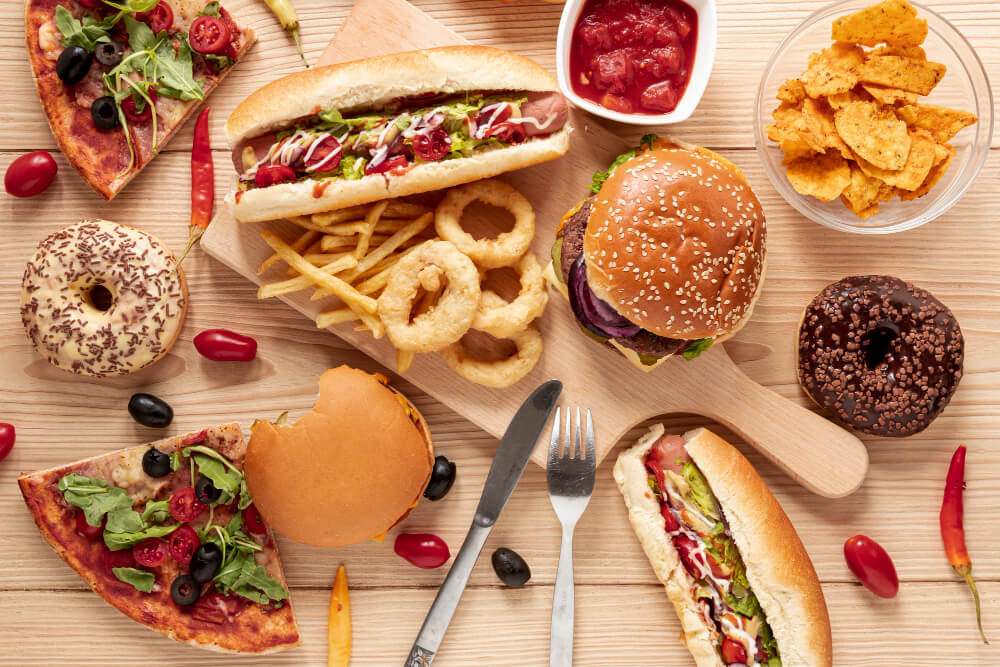Psoriasis patients must be mindful of the food they consume every day. This is due to the fact that a variety of foods have been identified as causing psoriasis recurrence.
Psoriasis-inducing foods
Psoriasis is a skin condition that is induced by autoimmune disorders. The procedure of replacing skin cells typically requires approximately one month. Nevertheless, among people with psoriasis, this process may extend over a period of several days. Consequently, the skin thickens as a consequence of the accumulation of old skin cells.
Psoriasis can manifest on several parts of the body, including the scalp, foot, chest, elbows, and fingernails. The condition manifests on the skin as a combination of dryness, itchiness, chapping, and bleeding of the scalp.
When a person's immune system weakens or they practice an unhealthy lifestyle, they are more likely to experience a recurrence disease. There are a number of foods that are known to cause flare-ups of psoriasis, including the following:
Gluten
Gluten sensitivity is prevalent among individuals with psoriasis. Gluten is a protein that is present in cereals, including wheat and barley. If you have psoriasis and are gluten-sensitive, it is recommended that you limit your intake of foods that contain gluten, such as:
- Wheat and its derivatives
- Rye, barley, and malt
- Pasta, noodles, and baked products that contain wheat, rye, barley, and malt
- Specific processed foods
- Specific condiments and seasonings
- Malt beverages and beer
Red meat and dairy products
Arachidonic acid is a polyunsaturated lipid that is present in red meat and dairy products. This form of fat has the potential to exacerbate psoriasis symptoms due to its quick rate of conversion into inflammatory compounds. In addition to red meat, it is important to refrain from consuming processed red meat (such as sausages, bacon, and corned beef) and egg yolks, eggs, and other dairy products.
Processed foods
In general, packaged foods are high in calories and can contribute to the development of additional health issues, including metabolic syndrome and obesity. Chronic inflammation in the body can result from this condition, which can lead to psoriasis.
The following foods should be avoided: processed meat, canned fruit and vegetables, various packaged foods, and other types of food that contain high levels of sugar, sodium, and fat.
Nightshade group vegetables
The nightshade family of vegetables, which includes potatoes, eggplant, tomatoes, and peppers, is known to cause psoriasis flare-ups. This group of veggies contains solanine, a compound that has been observed to impact the digestive system and induce inflammation.
Alcohol
Because of its potential to compromise the immune system, alcohol is considered to trigger psoriasis flares. Limit your alcohol consumption or stop completely if you have psoriasis.
Other factors that can trigger psoriasis flares
Environmental and lifestyle factors, in addition to dietary issues, can contribute to the recurrence of psoriasis, such as:
Sun exposure
Psoriasis patients should avoid excessive sun exposure. Sun exposure in appropriate levels can help relieve psoriasis symptoms. However, excessive sunbathing or exposure to sunshine might cause psoriasis to reoccur.
Dry and cold weather
Psoriasis can be exacerbated by the dehydration of the skin caused by cold and dry air. If you live in dry conditions, give thought to running a humidifier at home.
Stress
Most people with psoriasis find that stress brings on flare-ups of their skin condition. Breathing techniques, meditation, or yoga can help relieve stress if it is a known trigger for psoriasis flare-ups.
In addition to the causes listed above, obesity and the use of certain drugs might cause psoriasis to return. The causes of psoriasis flare-ups vary from individual to person. Recognizing your psoriasis triggers allows you to effectively prevent the condition.
If you need medical advice or consultation, you can either visit a doctor or make use of the consultation features that are available in the Ai Care application by downloading the Ai Care application from the App Store or Play Store.
Looking for more information about nutrition, food, and other diet tips? Click here!
- dr. Alvidiani Agustina Damanik
Lockett, E. (2023). What Foods Can Trigger a Psoriasis Flare-Up?. Available from: https://www.healthline.com/health/psoriasis/food-triggers-for-psoriasis
John Hopkins, Psoriasis Diet: Foods to Eat and Avoid If You Have Psoriasis. Available from: https://www.hopkinsmedicine.org/health/conditions-and-diseases/psoriasis-diet-foods-to-eat-and-avoid-if-you-have-psoriasis
Orenstein, B. (2023). 8 Foods That Might Cause Psoriasis Flare-Ups. Available from: https://www.everydayhealth.com/psoriasis/diet/foods-to-avoid-if-you-have-psoriasis/











